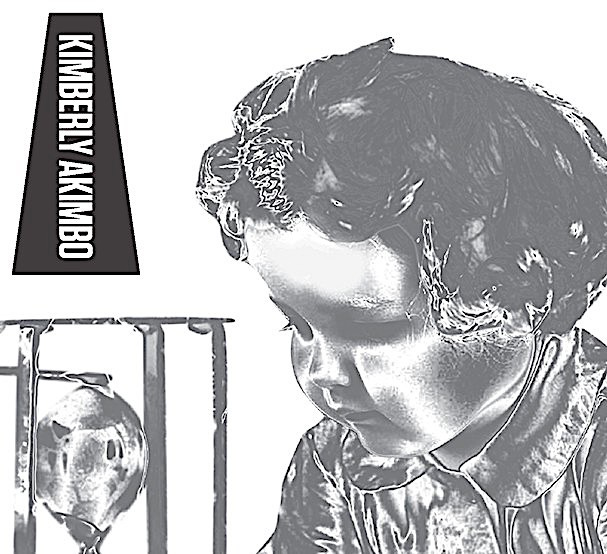"KIMBERLY AKIMBO" SHOWS THE WAY
Who will lead us now?
The question lurks in the shadow left by the loss of Stephen Sondheim (about whom I will write more personally, as promised, later, but for now…). Who will continue to push musical theater's boundaries? Who will "give us more to see" (and hear)?
Lin-Manuel Miranda stands front and center, obviously; a wondrous and worthy leader. The opening last week of Jeanine Tesori's irresistibly askew new musical, Kimberly Akimbo, at Atlantic Theater Company, alongside the titanic revival of her Caroline, or Change at Roundabout Theater Company, has really got me thinking. I don't know about you, but I'm following her and him.
I've already written quite a few words about Jeanine Tesori in EVER AFTER, my new book, plus a recent column here on Caroline, or Change, but the lady just keeps pushing forward and demanding further attention. Kimberly Akimbo is the damnedest musical — beyond category, really, in the best Sondheim-esque sense; a frolic wrapped in a dirge inside an enigma. That enigma is the title character, Kimberly Levaco, a sweet, preternaturally perceptive, suburban New Jersey 16-year-old, who, because of a rare genetic affliction, looks to be in her late-60s, as she ages at four times the going rate.
This is the setup for Kimberly Akimbo, adapted from Pulitzer Prize-winning playwright David Lindsay-Abaire's acclaimed 2001 comico-drama. Tone is all in a Lindsay-Abaire work, a teetering toggling between whimsey and tragedy that is a balancing act, at best, without music. Demonstrating her protean, Sondheim-like skill to seemingly reinvent herself as a composer with every new project, Ms. Tesori has devised the perfect musical voice for Kimberly Akimbo. The underlying sound is 1990s pop, with dulcet accent notes of Philly Soul, and even unmistakable traces of Lou Reed's "Take A Walk on the Wild Side;” a sonic spectrum that Mr. Sondheim barely ever ventured into. Ms. Tesori deploys it affectionately and without condescension to tell Kimberly's story as this 16-year-old herself would. When the music rings out awkwardly it is because 16 is an awkward age, especially in 1990s Bergen County.
Awkwardness only makes the heart grow fonder of Kimberly and her high school classmate misfits. The adult characters, also misfits, are conversely an appalling bunch — Kimberly's alcoholic dad, neglectful, hypochondriac mom and maladroitly scheming, skivvy aunt — yet Ms. Tesori's music saves them all, re-rendering them in heroic pop star turns that redeem with arias of neurotic self-revelation. Think Sweeney Todd with a kick-ass backbeat and far less blood.
My focus here is on Jeanine Tesori as a vanguard musical theater composer, but Kimberly Akimbo is a joy to experience on many other levels. The lyrics, by Mr. Lindsay-Abaire, are lovely and unobtrusively matched to Ms. Tesori's roving musical range. A superb cast of youthful unknowns and vastly experienced veterans function as a tag team of show stoppers. Everybody gets the spotlight for a moment, or more — Steven Boyer, as Kimberly’s woozy Dad, Alli Mauzey, as her dazed and confused Mom and, especially, Bonnie Milligan as wild and wooly Aunt Debra. Each conjure sleazy characters with unexpected depth, while singing sensationally. The kids are alright too: Olivia Elease Hardy, Fernel Hogan II, Michael Iskander and Nina White gambol in a roundelay of percolating hormones and intricately pulsating harmonies, while Justin Cooley makes a very significant New York debut as Seth, Kimberly's youthful other half in an endearingly disconcerting odd couple.
Like so many of our greatest musicals, Kimberly Akimbo is an ensemble tour de force in service to a singular star turn. The gloriously venerable Victoria Clark — who is, I propose, at this moment the greatest voice and the greatest actress in musical theater — delivers such a star turn as Kimberly. Her offhand display of tumultuous vocal craft and transparent acting intensity endows this wisened 16-year-old with epic poignancy, on the cusp of tragedy, rescued by song.
Nothing about Kimberly Akimbo actually sounds like, or even suggests, the work of Stephen Sondheim (surface resonances with the youthfulness of Merrily We Roll Along aside). This is all to its credit, and to his credit, too, for having shown us how truly groundbreaking musical theater is made. It isn't solely about surprising subject matter or even merely about originality. It is about making music that feels inevitable in situations where music has rarely ventured before, revealing profundities along the way about who and what we are, all the while singing, timelessly and forever new.
Easy.
NEXT: “SS & ME (Part 2)” Resumed
READ…
“EVER AFTER: FORTY YEARS OF MUSICAL THEATER AND BEYOND”


